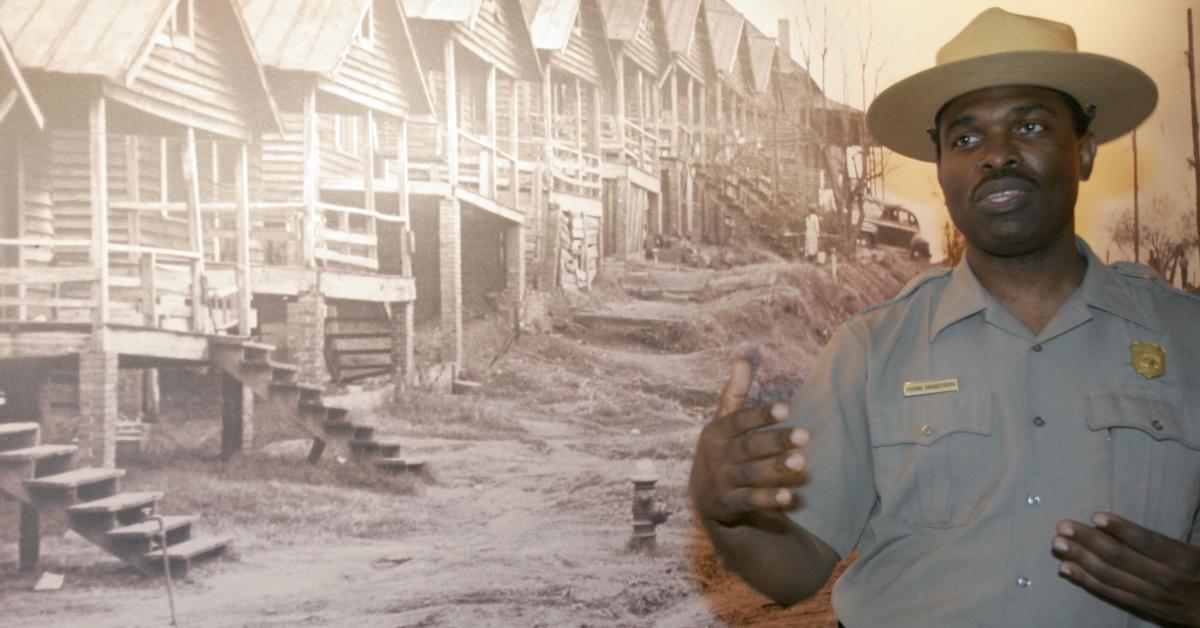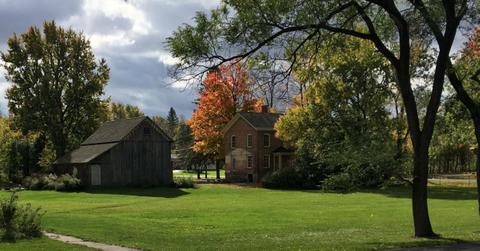These National Parks and NPS Historic Sites Commemorate Important Black History
Updated Feb. 1 2024, 2:23 p.m. ET
The U.S. celebrates Black History Month every February, giving us time to learn more about the history, struggles, and accomplishments of Black people in America. And even though the month-long holiday should be celebrated 365 days per year, this could be a particularly good time to visit our country's National Parks that specifically highlight Black history.
National Parks, of course, do have a questionable history in regards to the BIPOC community. Many were guilty of forcibly relocating Indigenous people when they were first established many decades ago. And while that isn't something that can be forgiven, we're glad to see the NPS is doing its part in preserving Black history today, to educate the masses and to pay respect to Black people in America.
These National Parks and NPS historic sites are dedicated towards preserving Black history.

New Orleans Jazz National Historical Park (Louisiana)
Louisiana's New Orleans Jazz National Historical Park preserves the history of New Orleans' traditions, and, of course, jazz music. New Orleans' Black community created jazz, and at the park, you can learn about jazz legends such as Louis Armstrong, Sidney Bechet, and Bessie Smith. You can also see live performances in the park — so take a look at the park's schedule for a night of live music and dancing.
Harriet Tubman Underground Railroad National Historical Park (Maryland)
Those visiting Church Creek, Md., should pay a visit to Harriet Tubman Underground Railroad National Historical Park. While enjoying the area's quiet, peaceful landscape, you can peruse the exhibits and legacy garden at the Harriet Tubman Underground Railroad Visitor Center. You can also watch a film, explore the library, or take a ranger-led interpretation to learn as much as you can about the hero who helped free so many slaves.
Selma to Montgomery National Historic Trail (Alabama)
Although the Selma to Montgomery National Historic Trail is a whopping 54 miles long, it enables visitors to see where the iconic Martin Luther King Jr. marched for justice across Alabama. You can see significant sights that were integral in passing the Voting Rights Act such as the Selma bridge, Montgomery's Tent City, and numerous interpretive centers along the way.
Maggie L. Walker National Historic Site (Virginia)
Richmond, Va.'s Maggie L. Walker National Historic Site preserves the home that Maggie Lena Walker resided in for many decades of her life. Walker dedicated most of her life towards civil rights advocacy, and to Black entrepreneurship. She was the first Black woman to serve as president of a bank, and ultimately found huge financial success. The home preserves artifacts from her life, and quite a bit of history on her family and life's work.
Boston African American National Historic Site (Massachusetts)
The Black Heritage Trail, which is also known as the Boston African American National Historic Site, gives a tour of Boston's Black history in the 1800s. Taking visitors from Beacon Hill's Massachusetts 54th Regiment, to the oldest Black church in the U.S. (the African Meeting House), you can learn about early abolitionist history, historical rights movements, segregation, and more.
Martin Luther King Jr. National Historic Park (Georgia)
Martin Luther King Jr. National Historic Park is located in Atlanta, Ga. — right in MLK's hometown. The park includes a visitor center, the D.R.E.A.M Gallery that rotates a wide range of exhibits, a monument commemorating King, a rose garden, a historic fire station, the Historic Ebenezer Baptist Church where MLK was baptized, and the King Center, which Coretta Scott King established to preserve her husband's legacy after his death.
Birmingham Civil Rights National Monument (Alabama)
Birmingham Civil Rights National Monument was established a few years ago, in 2017, by former POTUS Barack Obama. The monument aims to preserve civil rights history across four blocks in Birmingham, featuring several iconic spots such as the 16th Street Baptist Church, 4th Avenue Historic District Sites, the Birmingham Civil Rights Institute, and the A.G. Gaston Motel where MLK headquartered for a while.
Mammoth Cave National Park (Kentucky)
Though Mammoth Cave National Park isn't solely dedicated to commemorating Black history, it's home to quite a bit of Black NPS history. Many of the original tour guides there were both enslaved and freed African Americans, and today, rangers will discuss several such as: Stephen Bishop, Materson Bransford, and Will Garvin. According to Travel Experience Live, their stories and paths have been recorded and preserved by the park, and you can experience them all yourself.
Frederick Douglass National Historic Site (Washington D.C.)
Frederick Douglass National Historic Site preserves the legendary abolitionist's Washington D.C. home, paying tribute to his life's work. Douglass lived in the D.C. home from 1877 until his death in 1895, atop a 50-foot hill known as Cedar Hill. With original artifacts that belonged to Douglass and his family, you can truly immerse yourself in his incredible life.
This article, originally published on Feb. 20, 2023, has been updated.
